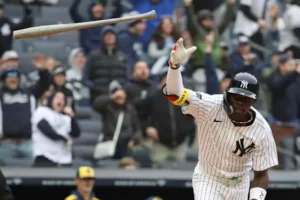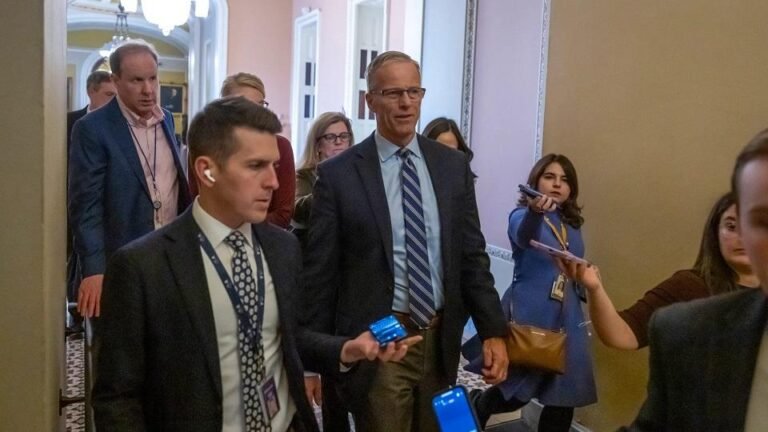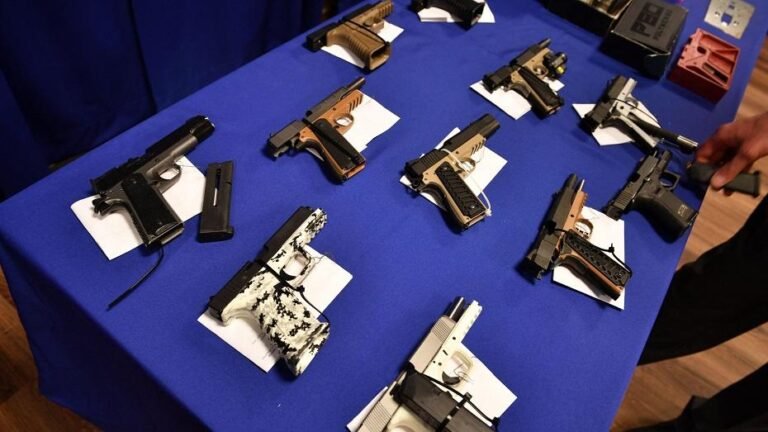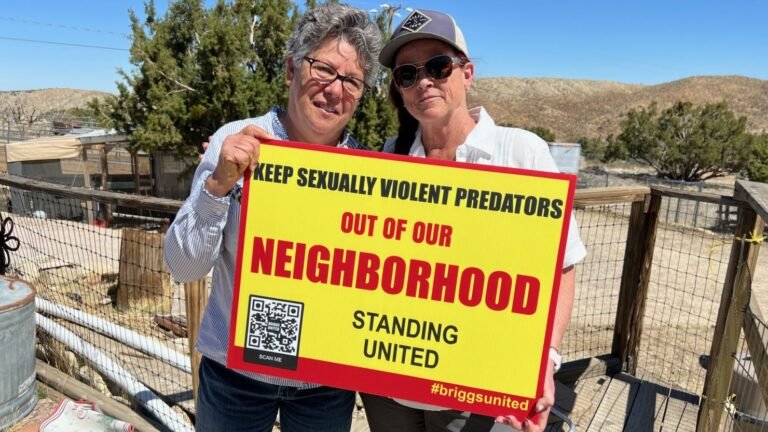Since Inauguration Day, the Justice Department has paused all investigations into corporate foreign bribery, curtailed enforcement of a foreign agent registration law, and deemphasized the criminal prosecutions of Russian oligarchs. Senior administration officials have considered eliminating the Department’s Public Integrity Section, which investigates and prosecutes alleged misconduct by federal, state, and local public officials.
At the same time, President Donald Trump has fired inspectors general from more than a dozen federal agencies.
Trump has long decried the criminal cases brought against him by special counsel Jack Smith, as well as by state prosecutors in New York and Georgia. “Never again will the immense power of the state be weaponized to persecute political opponents – something I know something about,” Trump said in his inaugural address.
Current and former DOJ and FBI officials told CNN that the ongoing effort to purge prosecutors and agents involved in Trump-related cases, along with the other personnel cuts, sends the message that the era of pursuing politically sensitive or corruption cases is over.
“If you’re a prosecutor or an agent and someone brings you a public corruption case, you’d be crazy to even consider taking any action,” one former senior FBI official told CNN. “Maybe that’s the point of all this.”
The conflict between career officials and political actors exploded Thursday in the calamitous effort to drop the criminal corruption charges against New York City Mayor Eric Adams.
Acting Deputy Attorney General Emil Bove authored a memo to the acting US attorney in the Southern District of New York, Danielle Sassoon, explaining that dropping the charges would allow Adams to devote his “full attention and resources” to combating illegal immigration – a top priority of the Trump administration – and to his 2025 reelection campaign. Adams has pleaded not guilty to five federal charges.
Bove echoed Adams’ assertion that he was only charged because he criticized former President Joe Biden’s immigration policies. And in a footnote, Bove said that dropping the case was not a quid pro quo. He said that prosecutors had informed Adams’ attorneys in a meeting that the government “is not offering to exchange dismissal of a criminal case for Adams’ assistance on immigration enforcement.”
The move was extraordinary: A top political appointee at the Justice Department ordering independent prosecutors to drop a case brought by their own office in New York’s southern district, and explicitly saying he was doing so “without assessing the strength of the evidence or the legal theories on which the case is based.”
By the end of the week the memo had set off a political firestorm as Sassoon informed Justice officials that no one in her office was willing to sign a court filing requesting the case be dismissed, a person familiar with the matter told CNN. Sassoon, a former clerk for Supreme Court Justice Antonin Scalia, reigned before she could be fired.
“I remain baffled by the rushed and superficial process by which this decision was reached, in seeming collaboration with Adams’s counsel and without my direct input on the ultimate stated rationales for dismissal,” Sassoon wrote in an eight-page letter to the attorney general.
Dismissing the Adams case, she added, “will amplify, rather than abate, concerns about weaponization of the Department.”
Bove quickly shot back in a letter to Sassoon, rejecting any suggestion that the department had acted improperly. “You have strained, unsuccessfully, to suggest that some of kind of quid pro quo arises from my directive,” he wrote. “This is false, as you acknowledged previously in writing.” Adams’ attorney similarly denied any “quid pro quo,” calling the suggestion a “total lie.”
The battling letters between Bove and Sassoon laid bare an apparent new Justice Department legal theory on public corruption cases, one that has roots in the Trump legal team’s defense of the president.
Bove’s allegation that prosecuting Adams was improper because it interfered with his ability to do his job is similar to a defense he and the rest of Trump legal team deployed in their defense of Trump in court – claiming that trying to prosecute him as he ran for president was improper interference.
The Justice Department does recognize that as a reason why it can’t prosecute a sitting president, but the precedent has never applied to a mayor or other elected official, many of whom have been prosecuted for corruption over decades.
After Sassoon rebuffed them, DOJ officials then turned to the top career corruption prosecutor and the top career criminal prosecutor inside the Justice Department, both of whom refused to sign the dismissal and resigned. By day’s end, as many as six prosecutors had resigned over the impasse.
CNN has reached out to the Justice Department for comment.
Public integrity unit under attack
Hours after Trump was inaugurated, his new Justice Department leadership took its first action against public corruption prosecutors.
Corey Amundson, who was installed as the top corruption prosecutor at the DOJ by Trump’s political appointees during the first Trump administration, was told he was being reassigned. He resigned.
Trump transition officials had aimed Amundson in part because his unit was mentioned in a footnote in a filing by special counsel Smith, as they had reviewed the superseding indictment of Trump in the months before the 2024 election, according to two people briefed on the discussions.
Amundson’s former unit, the Public Integrity Section, was created in 1976 to combat corruption in the wake of the Watergate scandal. Over the past several decades, however, it has established a mixed record on complex cases and has run into a skeptical Supreme Court.
In 2008, for instance, public integrity prosecutors were forced to dismiss charges against Alaska Republican Sen. Ted Stevens after they failed to turn over exculpatory info from the senator’s lawyers. The Unit faced a deadlocked jury in the case against former Democratic North Carolina Sen. John Edwards, and the Supreme Court also overturned the conviction of Republican Virginia Gov. Bob McDonnell, setting a precedent that made it more difficult to bring corruption cases.
The unit also worked on the yearslong sex crimes investigation into Trump’s first pick for Attorney General, former Rep. Matt Gaetz. The Florida Republican denied wrongdoing and was never charged.
Trump officials have seriously considered eliminating the unit but decided they can’t just shut down the office for administrative and budgetary reasons, a source familiar with their thinking told CNN. However, the source says, they are still exploring other ways to dilute the embattled corruption unit by subsuming it into another part of the department.
Corruption cases won’t go away without the Public Integrity Section – they would just have to go through a different office.
But even without targeting the Public Integrity Section, the Justice Department has signaled to politicians and high-powered figures that they will reward friends of the president for their support.
Trump also undermined another corruption case, one brought by Chicago federal prosecutors with assistance from the Public Integrity Section. Last week, the president pardoned Rod Blagojevich, the former Illinois governor convicted of corruption charges that included a scheme to sell an appointment to fill the vacant Senate seat left by then-President Barack Obama. During his first term, Trump had commuted Blagojevich’s sentence but hadn’t issued a full pardon.
Foreign bribery and corruption
Both Attorney General Pam Bondi and Trump have put their efforts to change foreign corruption enforcement in a series of memos and executive orders that make clear how the new administration prioritizes which cases to charge.
Last week, Trump signed an executive order pausing all enforcement of a law that makes it illegal for companies in the United States to bribe foreign governments over business deals. The order bars prosecutors from opening any investigations under the law, called the Foreign Corrupt Practices Act (FCPA), for 180 days.
The act “has been systematically, and to a steadily increasing degree, stretched beyond proper bounds and abused in a manner that harms the interests of the United States,” the executive order reads.
The order also says that the Trump administration will review cases already brought to “restore proper bounds” on enforcing the law.
Bondi also addressed the FCPA in a memo released just after she was confirmed, saying that prosecutors should prioritize bribery cases that involve cartels or transnational criminal organizations, as opposed to how the law has traditionally been used to crack down on corporate bribery abroad.
The guidelines mark “a major shift away from DOJ’s enforcement priorities for more than a decade,” Margot Laporte, an attorney at Dorsey & Whitney with expertise on FCPA, told CNN. “The Trump administration has shown that it is willing to use laws to achieve political objectives,” she said.
But, she said, the impact that the new approach will have on corruption prosecutions is still unclear.
Even if Bondi and Trump stop all criminal enforcement of the FCPA, the statute of limitations is longer than four years and companies or individuals who break the law could still be charged when Trump leaves office, experts told CNN. The Securities and Exchange Commission can also sue companies over FCPA violations, and foreign governments could bring charges in their own countries.
“The US historically has largely taken on a role as the global police force for anticorruption,” Laporte said, “but other countries have beefed up their anticorruption enforcement, so they are in a position to step in now.”
Bribery laws aren’t the only thing that the Justice Department is veering away from. Bondi released a second memo instructing prosecutors to cut back on enforcement of the Foreign Agents Registration Act, a law that’s been used to prosecute Trump donors and allies like Paul Manafort, Trump’s 2016 campaign chairman, as well as Russian operatives who allegedly funded pro-Trump media figures during the 2024 presidential election.
The second memo also disbands a foreign election interference task force that’s identified foreign meddling in US elections, including in Trump’s favor.
The move is an effort “to free resources to address more pressing priorities, and end the risk of further weaponization and abuse of prosecutorial discretion,” Bondi wrote.
This story has been updated with additional information.














